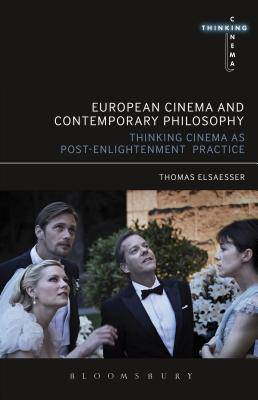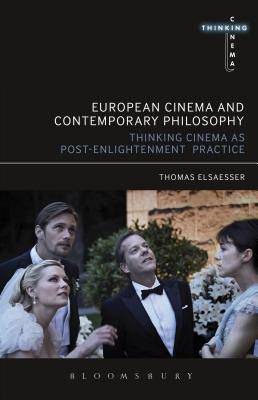
- Afhalen na 1 uur in een winkel met voorraad
- Gratis thuislevering in België vanaf € 30
- Ruim aanbod met 7 miljoen producten
- Afhalen na 1 uur in een winkel met voorraad
- Gratis thuislevering in België vanaf € 30
- Ruim aanbod met 7 miljoen producten
Zoeken
€ 339,45
+ 678 punten
Uitvoering
Omschrijving
Winner of the Limina Award 2021
This groundbreaking volume for the Thinking Cinema series focuses on the extent to which contemporary cinema contributes to political and philosophical thinking about the future of Europe's core Enlightenment values. In light of the challenges of globalization, multi-cultural communities and post-nation state democracy, the book interrogates the borders of ethics and politics and roots itself in debates about post-secular, post-Enlightenment philosophy. By defining a cinema that knows that it is no longer a competitor to Hollywood (i.e. the classic self-other construction), Elsaesser also thinks past the kind of self-exoticism or auto-ethnography that is the perpetual temptation of such a co-produced, multi-platform 'national cinema as world cinema'. Discussing key filmmakers and philosophers, like: Claire Denis and Jean-Luc Nancy; Aki Kaurismäki, abjection and Julia Kristeva; Michael Haneke, the paradoxes of Christianity and Slavoj Zizek; Fatih Akin, Alain Badiou and Jacques Rancière, Elsaesser is able to approach European cinema and assesses its key questions within a global context. His combination of political and philosophical thinking will surely ground the debate in film philosophy for years to come.Specificaties
Betrokkenen
- Auteur(s):
- Uitgeverij:
Inhoud
- Aantal bladzijden:
- 352
- Taal:
- Engels
- Reeks:
Eigenschappen
- Productcode (EAN):
- 9781441129499
- Verschijningsdatum:
- 29/11/2018
- Uitvoering:
- Hardcover
- Formaat:
- Genaaid
- Afmetingen:
- 152 mm x 229 mm
- Gewicht:
- 639 g

Alleen bij Standaard Boekhandel
+ 678 punten op je klantenkaart van Standaard Boekhandel
Beoordelingen
We publiceren alleen reviews die voldoen aan de voorwaarden voor reviews. Bekijk onze voorwaarden voor reviews.








